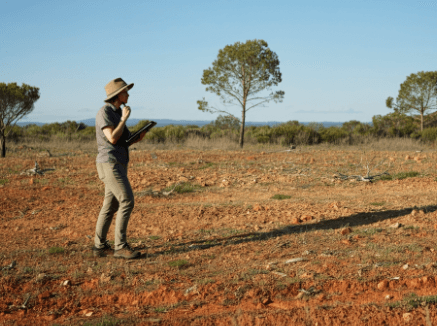Understanding how land auctions work can open doors to amazing opportunities, whether you’re buying or selling land. Each year, thousands of acres are sold through auctions in the United States, with reports indicating this method often leads to competitive bidding and quick transactions. Land auctions are known for their transparency, providing buyers and sellers with a clear process and fair deals. Auctions offer sellers a unique opportunity to instill urgency while providing buyers with the chance to acquire land at fair or even below-market prices. Steve Daria and Joleigh, renowned real estate investors and cash land buyers, have helped countless individuals navigate the land auction process successfully. With their deep expertise, they can guide you through every step, ensuring you maximize your value. If you’re curious about how land auctions work and want professional assistance, Steve and Joleigh are here to help. Book a free discussion with them today to explore your options and make confident decisions about your next land transaction.
Key Points
- Land Auctions Start with a Clear Process: Land auctions begin when an auctioneer or agency lists and promotes a property. Interested buyers bid on the land during a set time or event, ensuring a transparent and organized transaction.
- They Are Beneficial for Buyers and Sellers: Sellers benefit from the urgency created by competitive bidding, which can lead to quicker sales. If the conditions are right, buyers can acquire land at advantageous prices, often below market value.
- Auctioneers Play a Vital Role: Auctioneers oversee the event, ensuring all bids are legitimate and the process runs smoothly. They bridge buyers and sellers, providing the necessary information and managing the bidding process.
- Understanding Market Value is Key: Both buyers and sellers must research the land’s market value before entering an auction. This knowledge helps sellers set realistic expectations and lets buyers recognize a good deal when bidding.
- Competitive Bidding Often Results in Fair Pricing: The competitive nature of auctions encourages fair pricing as multiple buyers bid for the same property. This process often ensures the land sells for its true market worth, benefiting all parties involved.
What is a land auction, and how does it work?
A land auction is a process where a piece of land is sold to the highest bidder in a public or online setting.
It is a straightforward method that involves both the seller and potential buyers gathering at a specified location or platform.
The auctioneer manages the event and starts the bidding at a minimum price, and buyers place their bids until the highest offer is reached.

Understanding how land auctions work can help buyers and sellers make informed decisions.
These auctions are transparent, meaning all bids are visible, and the process eliminates lengthy negotiations.
For sellers, land auctions create a sense of urgency and competition, often leading to quicker sales.
On the other hand, buyers may find properties at competitive or below-market prices.
Knowing how land auctions work ensures that everyone involved is prepared, increasing the chances of a successful and fair transaction.
Get Started: Get Your Cash Offer Below…
We are direct land buyers. There are no commissions or fees and no obligation whatsoever. Start below by sharing where your property is and where we can send your offer…
Are land auctions open to everyone or only certain buyers?
Land auctions are generally open to everyone, making them accessible to individual buyers, investors, and even developers.
Whether you’re purchasing your first property or expanding your investment portfolio, these auctions are open to you—provided you meet the eligibility requirements.
To take part, most auctions require you to register in advance and sometimes provide proof of funds or a deposit.
Understanding how land auctions work is key to navigating the process and knowing what to expect.
Open auctions are designed to encourage competitive bidding, giving all participants an equal chance to make the winning bid.
They are transparent, with bids displayed publicly, so everyone knows the price escalation in real time.
Although specific rules may differ based on the auctioneer or location, these events are designed to encourage broad and inclusive participation.
Learning how land auctions work and preparing accordingly allows every buyer to take full advantage of the opportunities available.
What are the types of land auctions?
- Absolute Auctions: An absolute auction ensures the land is sold to the highest bidder, no matter the final price. This type ensures a sale, ideal for sellers who want a quick transaction and buyers looking for good deals.
- Reserve Auctions: In a reserve auction, the seller establishes a minimum acceptable price for the land. If bidding does not meet this amount, the land will not be sold, giving the seller control over the outcome.
- Live On-Site Auctions occur at a physical location, often right on the sold property. Buyers can experience the land firsthand before bidding, making it an excellent option for those who want to inspect the site in person.
- Online Auctions: Online auctions allow buyers to bid on land from the comfort of their own homes. This type has gained popularity for its convenience and wider reach, connecting buyers and sellers across different regions.
- Sealed-Bid Auctions: With sealed-bid auctions, buyers submit their bids confidentially, and only the auctioneer knows the amounts. The highest bidder wins, but the secrecy adds a layer of strategy for participants compared to open bidding.
What should I research before participating in a land auction?
Before participating in a land auction, it’s important to do thorough research to make informed decisions.
Start by investigating the property itself—look into its location, size, zoning rules, and any potential restrictions or liabilities.
Understanding how land auctions work is essential, as it helps you know what to expect during the bidding process.
You should also review the auction terms and conditions carefully, as they often include important details about deposits, fees, and payment timelines.
Inspect the land in person to evaluate its condition and ensure it meets your needs.
Another key step is to research the property’s market value so you don’t overbid or miss a good deal.
Set a clear budget and stick to it during the auction to avoid financial strain.
Being well-prepared and understanding how land auctions work enhances your confidence while improving the likelihood of making a successful and satisfying purchase.
How do I determine if a piece of land at auction is worth the price?
1. Research the Market Value
Begin by researching the market value of comparable properties within the same neighborhood.
Look at recent sales prices to get an idea of the land’s worth.
This will help you set a realistic limit on how much you’re willing to bid.
2. Inspect the Property
If possible, visit the land in person to assess its condition and features.
Check for things like access roads, utilities, and any visible issues that could lower its value.
A personal inspection ensures you’re aware of what you’re getting before bidding.

3. Evaluate the Location
Location plays a big role in a property’s value.
Research whether the area is growing, has good infrastructure, or is near schools, businesses, or recreational spots.
A desirable location often translates to higher long-term value.
4. Understand Development Costs
Consider any future land development expenses, such as land clearing, building, or connecting utilities.
Factor in these costs when determining the total investment you’ll need to make.
High development costs can make a seemingly affordable property less worthwhile.
5. Check Zoning Laws and Restrictions
Look into the local zoning rules and restrictions that apply to the land.
Some properties may have limitations on what can be built, which could impact your plans.
Understanding these rules ensures the property aligns with your intended use and investment goals.
6. Consider Environmental Factors
Check if the land has environmental concerns, such as flooding risks, soil stability, or protected areas.
Issues like pollution or poor drainage can increase costs and complicate development.
Knowing these factors beforehand keeps you from buying land, which creates more problems than benefits.
7. Estimate Potential Resale Value
Think about the property’s future resale value, even if you plan to use it yourself.
Land purchases are often investments, and areas with growing demand or planned developments may increase their worth.
Considering resale value helps ensure you’re making a smart long-term decision.
What are the steps to register and bid in a land auction?
To register and bid in a land auction, start by understanding how land auctions work and finding the auction details online or through an auction company.
To participate in most auctions, you’ll need to register beforehand.
This generally requires filling out a form and providing documents such as identification and proof of funds.
Some auctions may also charge a registration fee, so checking all the requirements beforehand is important.
Once registered, make sure you understand how land auctions work, including the specific rules of the event, such as bidding increments and payment deadlines.
Setting a clear budget is crucial to avoid overspending during the excitement of bidding.
Listen carefully to the auctioneer and bid strategically to stay ahead of your competitors when the auction begins.
After winning a bid, you’ll often need to pay a deposit on the spot and arrange full payment within a specific timeframe.
For expert advice and guidance, connect with seasoned real estate investors like Steve Daria and Joleigh, who specialize in land auctions and buying land for cash.
Don’t hesitate to seek help from these experts to make your land auction experience a success!
**NOTICE: Please note that the content presented in this post is intended solely for informational and educational purposes. It should not be construed as legal or financial advice or relied upon as a replacement for consultation with a qualified attorney or CPA. For specific guidance on legal or financial matters, readers are encouraged to seek professional assistance from an attorney, CPA, or other appropriate professional regarding the subject matter.
